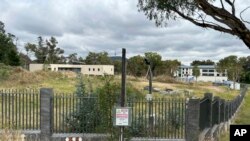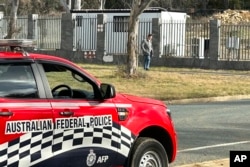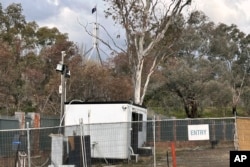Australia’s highest court on Monday dismissed Russia’s application for an injunction that would have prevented Moscow's embassy being evicted from a site in the national capital Canberra.
In dismissing the application, High Court Justice Jayne Jagot described Russia’s challenge on constitutional grounds to a law terminating the lease as “weak” and “difficult to understand.”
Parliament passed emergency legislation on June 15 that terminated Russia’s lease on the largely empty block on security grounds because the new embassy would have been too close to Parliament House.
Russia’s lawyer Elliot Hyde had argued that the Ambassador Alexey Pavlovsky would not have confidence in the integrity and security of a consular building already on the site if the embassy was not allowed to maintain possession until the challenge to the validity of the lease termination was decided.
Elliot said a man who has been living on the site in a portable cabin at least since last week was a security guard protecting the compound. The man had been described in the media as a Russian diplomat.
Prime Minister Anthony Albanese said he welcomed the High Court decision and expected the Russians to leave the site.
"The court has made clear that there is no legal basis for a Russian presence to continue on the site at this time, and we expect the Russian Federation to act in accordance with the court’s ruling," Albanese told reporters.
The Russian Embassy did not immediately respond to a request for comment. Previously, Russia had accused Australia of “Russophobic hysteria” for canceling the lease of the site in Canberra's diplomatic quarter where Moscow wanted to build a new embassy. The current Russian Embassy is in the Canberra suburb of Griffith and its operations are unaffected.
The security guard left the site after the decision. He was carrying bags and was collected by a car with diplomatic license plates, media reported.
Australian National University international law expert Don Rothwell said an examination of the published list of accredited Russian diplomats in Australia revealed there were only three male diplomats who could be the man guarding the embassy site.
Given Elliot's description of the squatter as a guard, Rothwell doubted the man had diplomatic immunity, which could have prevented Australian authorities removing him from the site.
“If the Commonwealth [government] issued an order to this individual — we'll call him the security guard — to leave, as soon as he left the Commonwealth could then seek to completely secure the site and ensure that no one else could enter,” Rothwell said.
Australian Federal Police last week declined to explain why the man had not been removed from the contested site as a trespasser.







